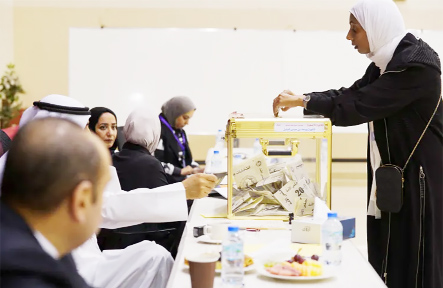Political turmoil in Kuwait as emir dissolves parliament

Aljazeera :
Kuwait’s emir has dissolved the parliament and taken over some of its duties, state media reported, weeks after the Gulf country held elections.
Emir Sheikh Mishal al-Ahmad al-Sabah and the royal-appointed cabinet will assume some powers of the 50-member National Assembly, he said on Friday, in an address broadcast on state television.
He also suspended some unspecified articles of the constitution for “a period of no more than four years”, without elaborating.
“The unhealthy atmosphere experienced by Kuwait in previous years has encouraged the spread of corruption to reach most state facilities, and unfortunately it reached the security and economic institutions,” the 83-year-old ruler said, adding that “it has even affected the justice system”.
“We have faced difficulties and obstacles that cannot be tolerated,” he said.
The elections in April were the first to be held under Sheikh Mishal, who came to power last December after the death of his half-brother and predecessor, Sheikh Nawaf al-Ahmad al-Jaber al-Sabah.
Repeated disputes between the National Assembly and the cabinet have triggered dissolutions of parliament, curtailing investment and reforms aimed at reducing the country’s reliance on oil revenue.
Parliament was to meet for the first time on Monday, but several politicians had refused to participate in the government.
He also suspended some unspecified articles of the constitution for “a period of no more than four years”, without elaborating.
“The unhealthy atmosphere experienced by Kuwait in previous years has encouraged the spread of corruption to reach most state facilities, and unfortunately it reached the security and economic institutions,” the 83-year-old ruler said, adding that “it has even affected the justice system”.
“We have faced difficulties and obstacles that cannot be tolerated,” he said.
The elections in April were the first to be held under Sheikh Mishal, who came to power last December after the death of his half-brother and predecessor, Sheikh Nawaf al-Ahmad al-Jaber al-Sabah.
Repeated disputes between the National Assembly and the cabinet have triggered dissolutions of parliament, curtailing investment and reforms aimed at reducing the country’s reliance on oil revenue.
Parliament was to meet for the first time on Monday, but several politicians had refused to participate in the government.
